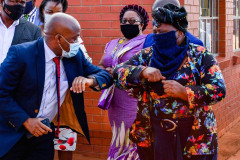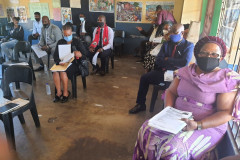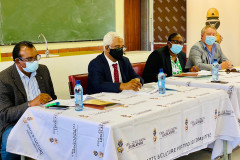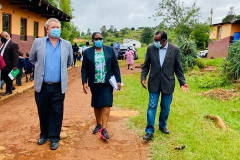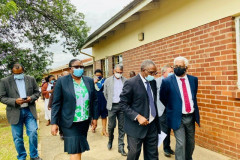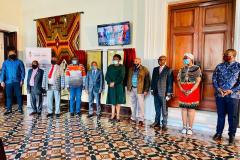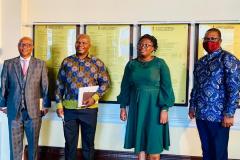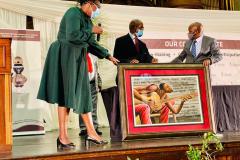KZN LEGISLATURE PAYS TRIBUTE TO ISILO SAMABANDLA KING GOODWILL ZWELITHINI KABHEKUZULU
24 March 2021
For Immediate Release
Attention: News/Assignment Editors, Political Reporters, Education Reporters.
KZN LEGISLATURE PAYS TRIBUTE TO ISILO SAMABANDLA KING GOODWILL ZWELITHINI KABHEKUZULU.
The KZN Legislature hereby gives notice of a Special Sitting to be held on the 26 March 2021 in honour of His Majesty King Goodwill Zwelithini. The Legislature further acknowledges the role played by the Zulu Monarch in bringing about democracy that the country enjoys today.
The departed King Goodwill Zwelithini continues to be considered by this institution as the voice of reason and the unifier of all people in the province. The Legislature acknowledges that His Majesty has remained an advocate for socio-economic development, including provision of infrastructure: roads, water and electricity for especially, people living in rural areas. In this regard the Legislature, staff and its Members value the involvement of the Monarch in its work, as He always encouraged effective oversight and strengthened service delivery to the people especially in the rural parts of our province.
Whilst King Goodwill Zwelithini has honoured without any failure his official address to the nation which precedes the State of the Province address every year, His wise words during these addresses will be missed by the institution on behalf of the people of KwaZulu Natal.
Media is invited to cover the Special Sitting to be held as follows:
Date: 26 March 2021
Venue: Legislature Chamber
Time: 10am
End
For media enquiries and interviews please contact:
Wesley Canham
Media Liaison and PR
KZN Legislature
0833767299
Nomusa Phungula
Media Liaison: Speaker’s Office
072 294 7237 / 071 851 0085

